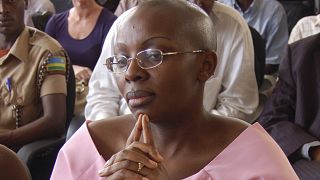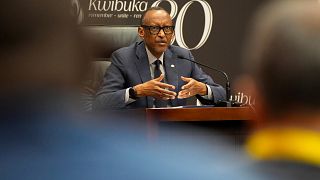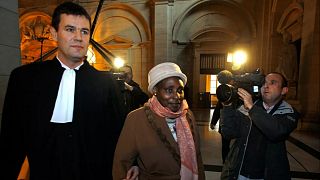Rwanda
As Rwanda commemorates the 29th anniversary of 1994 Genocide against the Tutsi, the youth are facing unique challenges. Many of them are unable to participate in certain entertainment activities such as weddings, birthday celebrations and social outings.
These activities are typically prohibited during the country’s annual week of commemorations set aside in April – the month that began the mass killings of the Tutsi minority ethnic group. The prohibition is done out of respect of the solemnity of the occasion, and in memory of the over 1 million lives lost.
For the youth of Rwanda, the trauma of the genocide is not limited to a lack of entertainment options during this remembrance period. They have inherited the pain and scars of their survivor parents, who are still healing from the horrific events that began on 7 April 1994.
Furthermore, some young people are grappling with not knowing their roots, as they never had the opportunity to know their grandparents, aunts, or uncles, who perished during the genocide.
This deep sense of loss and disconnection from their own history has left many young Rwandans searching for ways to connect with the families they never got to meet.
Like Manzi Ntare Nkaka, known by his stage name Manzi le Poete. The 22-year-old uses music, poetry, and theater to explore the untold history of the family he never had.
"Young people may sometimes feel disconnected from the commemorations of the 1994 Genocide against the Tutsi, as they may not fully comprehend the magnitude of the atrocities that their parents and grandparents endured,” he explains.
“The pain and suffering that our surviving families went through is beyond words and as we were growing up, it was usually a conversation that was off-limits. This often left us with many unanswered questions about our roots."
Upon reflection of the younger generation's disconnection from the genocide commemorations, 25-year-old Sharon Bayingana, initiated a movement called ‘Our Past’ which aims to help young people understand the magnitude of the period that took over a million lives in less than a hundred days.
She says growing up as a survivor's child meant learning about it from a young age. “I had questions about why I did not have a grandfather on my father's side or why my mother did not have a sister. It was these questions that led me to seek answers about the genocide against the Tutsi, through youth-led initiatives." she expresses.
"The ’Our Past’ initiative visits survivors, host shows and engages the youth about our history. This does a big service to people my age or younger than me in teaching us about the Genocide against the Tutsi and the kind of route we should be going in."
Claver Irakoze, who was only 11 years old when the genocide occurred. Now, at age 40, the father of two writes enlightening books to explain trauma to future generations – a way to heal his own wounds.













01:52
In Goma, solar power brings light and hope in Ndosho neighbourhood
02:13
Congo and Rwanda sign a US-mediated peace deal aimed at ending decades of bloody conflict
00:54
African Human Rights court says it can hear case brought by DRC against Rwanda
01:20
Somalia launches Centennial Vision 2060 roadmap for 'peace, prospertity and progress'
11:14
Rwanda Walks Away: what’s behind the Central Africa rift? [Business Africa]
Go to video
Man City closing in on swoop for Wolves’ Rayan Aït-Nouri